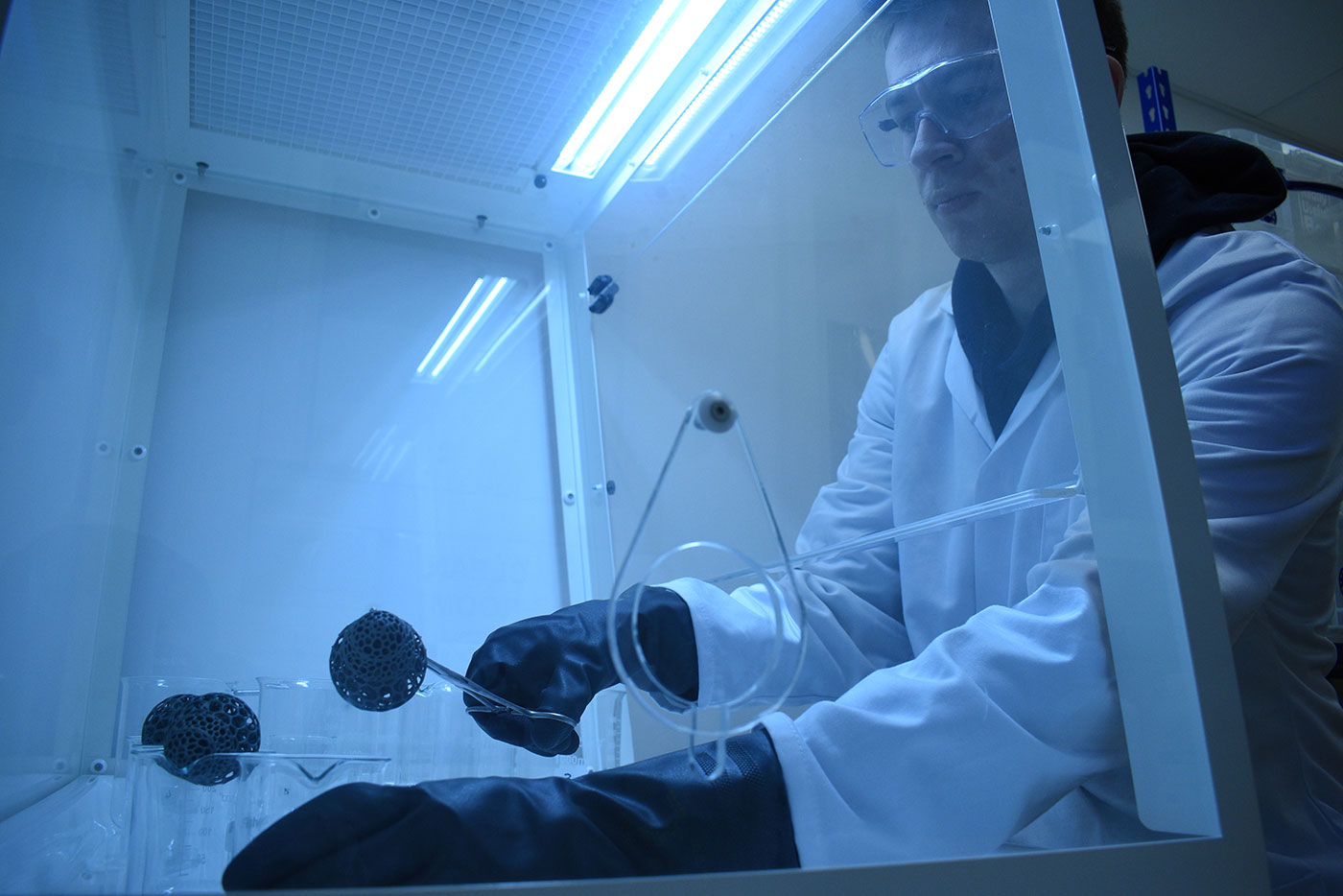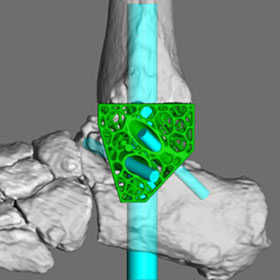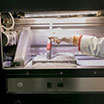

There is a strong clinical precedent for titanium implants in upper limb surgery, and they typically give excellent clinical outcomes. But for patients with complex bone conditions such as large bone or significant displacement, it can be difficult for surgeons to prescribe a standard, off-the-shelf implant of the ideal size and shape for the defect. While some solutions exist for surgeons to customise existing implants, the design process can be daunting, and procurement can be both prohibitively slow and expensive. Consequently, custom implants are often not considered even in cases where they could offer significant benefit.
Meshworks’ design and production platform has been designed in close collaboration with surgeons to create an intuitive design process that can be used to plan the most complex cases. By combining advanced design tools with rapid, state-of-the-art additive manufacturing capabilities, Meshworks aims to reduce patient readmission and improve quality of life for patients with a broad range of bone conditions.

